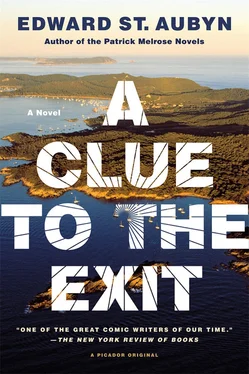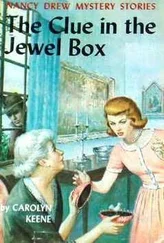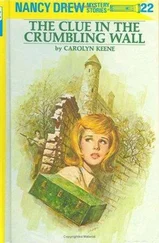I must cut through this illusion; I must restore myself to a level of poverty commensurate with my medical condition. I must get back to the heart of the matter: nothing being other than it is, time utterly smooth, utterly innocent of any possible alteration. Down there, I couldn’t even choose the time of my death by committing suicide. It would just be another moment, utterly bald, innocent of all possible alteration. The horror of that and the bliss. The compacted contradictions. Meltdown.
The only way forward is to gamble. Tomorrow evening, when I’ve got the cash together, I will go to Monte Carlo with half my remaining funds, about 1.2 million francs, and throw them away on the roulette tables.
Now that I’ve made that decision, I have purchased enough calm to write. Even the strangled perkiness of this Mozart concerto cannot defeat me. I think I should put one more character on the train with Crystal and Patrick. I like to get my characters in one place at one time. The unities. I know it’s old-fashioned, but consciousness is complex enough without characters moving around all over the place, except of course in imagination and memory.
Jean-Paul had always been fanatically curious about the nature of his own mind. At his primary school he’d been punished for hanging upside down from the fire escape, but when he told the headmaster that he’d been testing the effects of more blood flowing to the brain Monsieur Jourdan had privately predicted that Jean-Paul would become a great savant. By the age of eleven, he was eating a plate of Roquefort before going to bed, in the hope of adding to the splendour of his dreams. He had a torch and notebook under his pillow and a chewed ballpoint tied to a string around his wrist. Jolting out of his rank and troubled sleep he would transcribe his dream images before they slipped beneath the horizon of consciousness. As he grew older, he plunged into philosophy and psychoanalysis and emerged from the usual succession of hautes French schools as an advocate of Lacan and the other giant intellos of his youth.
Meeting Crystal had returned him to experiment and disobedience. The loss of self engendered by the psychedelic voyage she had taken him on in Utah’s Canyonlands had been pivotal to his development. It destroyed his faith in the priority of linguistic structures. Of course generative grammar had a hard-wired, impersonal chic, it was the matrix for making sense, but it was neither what he experienced in consciousness nor did it seem to him the ground of being.
The egalitarian chaos of his psychedelic experience highlighted the roles of empathy and analogy. At first he tried to contain this chaos: surely there were choices behind these analogies, desires behind the choices, psychological structures behind the desires, and, underlying the psychology, the stainless steel of generative grammar. This analysis made him feel false, made him feel he was resisting an insight rather than having one. It was untrue to the quality of his experience, to the plasticity of his choices, the molten emergence and reabsorption of images. As he allowed the old order to be dismembered, a new erotic order arose in which there was an unceasing intercourse between sensation and conception, the mental blossoming of every sensation and the embodiment of every idea.
He concluded that only the tyranny of talk had made thought seem like an internal conversation. He was now reluctantly drawn into a pre-linguistic realm where sensations gave rise to images and images to empathy and empathy to analogy, with words attaching themselves quite late in the process, if at all, like advertising executives promising to promote a product. The images sometimes naively took them on. And even those late-coming words could turn into sensations as easily as any other idea. If he said ‘ colombe’ , for instance, he had a spherical sensation, like a marble rolling quietly round the groove on the rim of a solitaire board. The English word ‘crazy’, on the other hand, ripped through him like shrapnel.
I must suspend the writing of On the Train for a moment in order to go to Monte Carlo and throw away half my remaining capital in the Salles des Jeux. I expect to be able to accelerate my production once I’ve reduced my income to a more uncomfortable level. It was rather a business getting hold of all that cash but I now have it in a small suitcase. I have to admit that I find the whole situation rather enthralling.
Gambling is wonderful. It breaks my heart that I’ve taken so long to discover it. On the other hand, ripeness is all, and there could be no more perfect moment to become addicted to this exhilarating new vice. It’s all very well to cultivate pure Being, but in order to become a well-rounded person one must also cultivate pure Chance.
I had never been to the casino in Monte Carlo before. The passport formalities warned me that I was entering another country, with its own dialect, its own currency of lustrous plastic counters and, above all, its own sense of time, sealed off from natural light and measured in spins and deals. If time is money, I was entering an eternity where all its other aspects were carefully falsified. I was at the heart of the delusion which I could only escape by penetrating more deeply.
I explained my predicament: the inconvenience of walking around all evening with a suitcase. The management obligingly took my suitcase and gave me two yellow and white chips with 500,000 written on them in large gold numbers, and two smaller green and white chips with 100,000 written on them in smaller gold numbers.
‘That’s better.’ I smiled, admiring the snug way they fitted into the four pockets of my jacket.
A man with the understanding eyes of a confessor said apologetically that he hoped I could produce documentation for such a large sum of cash. I was unknown to the establishment and sometimes criminal elements tried to use the casino to launder their money. I explained that I was faced with the prospect of premature death and saw no reason not to liquidate my assets and gamble. He seemed entirely satisfied, not to say excited, by my situation. I spared him my literary ambitions; I didn’t have all night to chat about the meaning of life.
Privately, I was obsessed with the logic of my decision. If I could cast off the heavy cloak of luxury, I would be able to write with that passionate concentration I need in order to say something true before I die. I would be embedded in the trickling sand of the hourglass. I would become as intimate with my own experience as a neck with a noose. I would strip my life down to a whitewashed room, a chair, a desk, a page, a pen. And the birth canal to this proud simplicity was the Salle d’Europe; cliffs of gold, azure shields, garlanded nymphs, and roulette tables, themselves arranged like the spokes of a wheel under the circular golden grid of the ceiling. I became so caught up in this paradox that I had to walk round the room again and again, trying to tune my mood to the great act of intensification I was about to perform.
As I circled the tables I started to notice that not only the belle époque decoration but the physiognomies of the staff and gamblers were devices for arresting time. There was a haughty tail-coated footman with white hair and a Roman nose. And a heavy-lidded corrupt waiter who gave available-for-flogging glances. There was a gambler with long curly hair and a musketeer’s zip of black beard in the cleft of his chin. He had a diamond earring, a yellow silk tie and a half-oriental girlfriend with white make-up and purple half-moons of exhaustion under each glittering black eye. There was a crowd of powder-caked, chain-smoking old women weighed down with jewellery. I saw an oriental man with a scar down the left side of his face and a bored tart in tow, smoking, chipless, on the stool next to him. He was also wearing a thick gold bracelet studded with diamonds. I saw jewellery everywhere, and realized that what looked like financial confidence was in fact the sign of how little these gamblers trusted themselves with money. When they had nothing left in their pockets, at least they still had thousands of pounds squeezed around their fingers, wrists and necks.
Читать дальше












